I don’t know about you, but I don’t believe in theory when it comes to creative subjects. Not to the same extend as with other subjects, like mathematics or quantum physics, anyway. Creative things, like painting or sculpting, are best learned by doing and making mistakes, and writing definitely fits that bill, too.
However, reading theory shouldn’t be dismissed entirely if you’re a writer. While I can’t speak for the painters or the sculptors amongst you out there, I can speak for myself – and I’m a writer who finds reading theory incredibly useful. Even entertaining at times.
I know, but bear with me.
The books which have taught me the most (and have made me laugh at times) are these:
A Writer’s Guide to Psychology
Save the Cat (check out the review here)
Self-Printed – The Sane Person’s Guide to Self-Publishing (read the review here)
There are plenty of theory books out there, but if you don’t know where to start then I hope that this short list can point you in the right direction.
The only other kind of theory reading every writer should do is to read everything. Not quite literally of course – but if you’ve read every single book ever written get in touch. We need to talk.
You can learn so much by reading other people’s books that it’s too valuable an experience to pass up. You learn what works for you, what doesn’t work for you, what you’re okay with despite every manual ever written telling you that it shouldn’t be done. It improves your own writing immensely. And who doesn’t love a good book?
Exactly.
But why should you read theory? Writing is an incredibly complex art form. If I live to be a hundred years old with one book written for every year that I’ve lived, I still wouldn’t know everything there is to know about writing. I still wouldn’t write the perfect book, and neither would you. And that’s perfectly fine, because something like writing can’t ever be perfected. There are too many genres out there, too many sub-genres, and far too many possibilities.
And yet I’d still pick up a good theory book when I’m one hundred years old, because I’ll always find something I haven’t considered before. This might be a writing technique to try, a writing prompt, a research idea, a new way to approach plotting my book, or something else I haven’t played with before.
Don’t think of reading theory as admitting that your writing is lacking. Think of it as a treasure cove full of useful information, which can only improve your writing. No matter how talented or experienced you are, you can always improve, so your current skill level doesn’t matter.
You should read theory because you might find a way to make your characters more believable.
You should read theory because you might learn a few tricks about world-building.
You should read theory because it might inspire you to try something new – which might then turn into your new favourite method.
You should read theory because your writing will profit from it.
Still not convinced? Pick up any of the four books above, and just read the first five pages. See what they can offer you.
What is your favourite theory book on writing? Which book has aided you the most, and maybe even still helps you today? Is there a book you keep referring to? Are you completely against reading theory and need a little more convincing? Grab a cookie and let’s chat!
——————————–
GIFs are from giphy
For all of my other musings, click me!
For Cookie Break’s home page, have a look here.
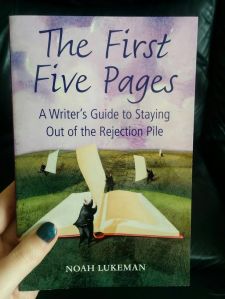
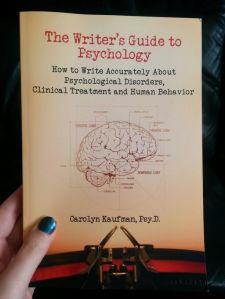
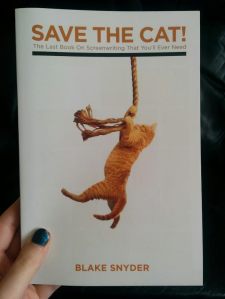
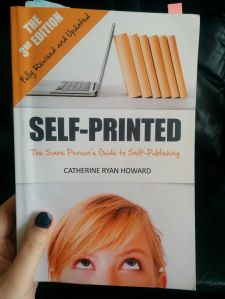
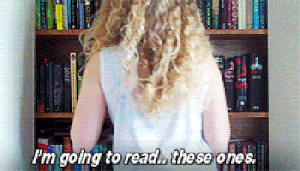
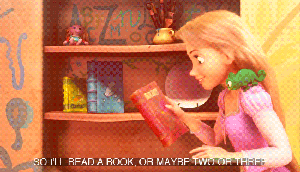
April 19, 2016 at 10:15 am
I swear by Stephen King’s ‘On Writing’. It’s half masterclass, half memoir, and I think it’s brilliant. It also helps that I’m a MASSIVE King fan 😉
LikeLiked by 2 people
April 19, 2016 at 10:35 am
I did start reading On Writing a while ago but didn’t have the time to focus on it. Fortunately we have a copy in my library, so I can take it out again when I have the time 🙂 I did love what little I read. His sense of humour is fantastic!
LikeLiked by 1 person
April 19, 2016 at 10:37 am
The way he describes his accident is so raw and blunt- shocking, but entertaining. I love that he isn’t just shoving advice down our throats. It’s all tried and tested, take it or leave it 🙂
LikeLiked by 2 people
April 19, 2016 at 10:43 am
I don’t think I got that far, but I agree. I love that he puts so much humour into otherwise horrific moments!
LikeLiked by 1 person
April 21, 2016 at 1:55 am
The King has a dry, sarcastic sense of humor that shines through when describing his brush with death. He tells of the man who hit him with his pick up truck as looking like a character right out of his books.
LikeLiked by 2 people
April 20, 2016 at 2:34 pm
I’ve heard a lot of really good things about that book. I’m kind of eager to read it as well. Is it massively helpful like I’ve heard?
LikeLiked by 2 people
April 20, 2016 at 3:08 pm
I believe so, but I’m a huge King fan 😉 It’s more about what he does, rather than ‘you must do this’ which is refreshing. He also tells his story which gives us all hope. Especially when he says he chucked the Carrie manuscript in the bin thinking it was rubbish, and then his wife found it and made him keep it. Even King has self-doubt 😉
LikeLiked by 1 person
April 20, 2016 at 4:31 pm
As K said – he doesn’t tell you what you have to do (apart from that every writer should also read), he tells you what he did. It’s refreshing and also really funny! You could read it for the humour alone 😉 But it’s also not a long book (unless we have a shorter version in our library) so it shouldn’t take you too long to get through it 🙂
LikeLike
April 19, 2016 at 10:17 am
I have ‘The First Five Pages’ and I have read through it, made notes and put sticky notes over the pages. But I’m not sure how much of the advice I actually used during the final editing stages of my novel. Maybe some of it sunk in.
LikeLiked by 1 person
April 19, 2016 at 10:36 am
I’m sure it did 🙂 There’s a lot of information to take in in books like these, so you can’t possibly remember everything! You’ve got it in case you need/want to refer back to it 🙂
LikeLiked by 2 people
April 21, 2016 at 1:58 am
“The first five pages” is a gem in my books ( pun intended). Cut to the chase, literal and realistic.
LikeLike
April 20, 2016 at 4:41 pm
I just got the Sane Person, but I haven’t had a chance to start reading it yet. I’m reading Orphan Dani by Simon Driscoll for my mom right now. A few of these look really good though.
LikeLiked by 1 person
April 20, 2016 at 4:43 pm
I usually find a lot of new books to read on Wednesdays ^^
LikeLike
April 21, 2016 at 1:23 am
A great post Sarina! I definitely believe that reading books on theory are a great way to expand your perspective on writing. I have Stephen King’s On Writing on my bookshelf to be read as I hear so many good things about it. Save the Cat is there too! I’ve also really enjoyed KM Weiland’s books on Outlining and Structuring.
Thanks for sharing these books. I’ll have to look into the others. 🙂
LikeLiked by 1 person
April 21, 2016 at 1:56 pm
I’ll make a note of that name, maybe we’ve got something in my library 🙂 After all this formatting and editing I wouldn’t mind some theory reading! (I’m a strange girl, I know)
LikeLiked by 1 person
April 21, 2016 at 2:05 am
The Stephen King book is insightful, as the author details what works ( very well) for him. Although, I did have a divergent opinion when it came to character development (i.e. Backstory) and plotting. King often writes in an action-driven way. I prefer stories focusing on character evolution/emotions as the story’s propelling force.
LikeLiked by 1 person
April 21, 2016 at 1:57 pm
I don’t think I got that far! I returned my copy eventually but I will take it out again. Possibly for next week 🙂
LikeLike
April 21, 2016 at 2:13 am
I’m sorry if I’m repeating myself. I just posted a few comments but can’t seem to be able to view them in the thread.
“The first five pages” is a gem. I love how concise and literal Lukeman’s advice is.
About Stephen King, it’s worth the read. It’s insightful and entertaining. It’s about his vision and what works for him. He’s an action-driven author. I work from a character-driven standpoint. That being said, he’s Stephen King and I am… Well, I’m not Stephen King, haha.
Nice post Sarina! And thanks for the cookie 🙂
LikeLiked by 1 person
April 21, 2016 at 1:58 pm
That’s because I have to approve first-time commenters 🙂 You should be fine from here on!
I found The First Five Pages in my library and took it out, but loved it so much I bought my own copy. I figured it would be a useful book to have handy! 🙂
You’re very welcome, help yourself to more if you like ^^
LikeLike